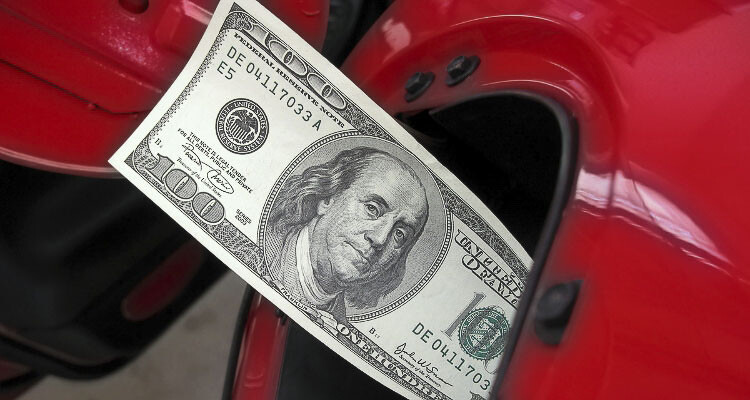
Expert thinks that the legislative component added by cap-and-trade may be as high as 45 cents per gallon
Timothy Schumann
The Center Square Washington
Three weeks ago, Washington surpassed California as the most expensive fuel market in the nation. That trend held this week as prices hovered close to the $5.00 per gallon mark.
Up nearly 30% in the last six months alone, this is only the third week this year that fuel prices have fallen in the state. The average price of a gallon of regular unleaded was sitting at $4.96 statewide on Monday, down from $4.98 the week prior, according to AAA data. This price drop marks only the 3rd week this year of declining fuel prices for Washingtonians, following the implementation of the new carbon tax earlier this year.
This two-cent per gallon decrease moved opposite the national average, which rose from $3.53 to $3.54 per gallon.
“Gas prices may rise over the next few days based on slightly higher demand,” said AAA spokesperson Andrew Gross in a statement. “But it could be more of a blip than a trend, and demand may retreat once the holiday is further in the rearview mirror.”
While that trend may hold true for the rest of the nation, it can hardly be called a blip in Washington, with fuel prices holding steady around $5.00 per gallon for weeks.
Washington’s $4.96 per gallon is $1.42 per gallon higher than the national average of $3.54. It is also $2.00 per gallon above the nation’s least expensive fuel cost of $2.96 per gallon, currently paid by Mississippi residents.
Intra-state variance remains high at $1.17 per gallon, down five cents per gallon from the week prior. The outliers this week, again San Juan and Asotin counties, represent the most and least expensive gas prices statewide at $5.50 and $4.33 per gallon, respectively.
This price variance still largely follows the Cascade Range, with residents to the west paying a higher premium at the pump than residents to the east.
Some state policy experts think there’s a legislative component to the relatively high cost of Washingtonians’ fuel, as previously reported by The Center Square, citing the state’s new cap-and-trade carbon tax program implemented Jan 1. of this year.
With the second carbon auction completed May 31, and the results announced June 7, one of those experts thinks that the legislative component added by cap-and-trade may be as high as 45 cents per gallon.
“Although Washington is paying more for CO2 emissions than California, that additional cost doesn’t help the environment – it just harms our economy,” said Todd Meyers of the Washington Policy Center in a recent report. “As long as the governor and agency staff continue to deny that reality, Washington residents will pay a high price for energy, but won’t receive the environmental benefits they are paying for.”
One Democrat, Senator Mark Mullet, agrees this price is too high, having recently introduced legislation to cap the price of these auctions.
“Putting a price on carbon pollution is an important part of responding to our climate crisis, but the prices for carbon permits at our auctions have been way too high,” said Mullet in a statement accompanying the announcement of the legislation.
“The whole idea all along has been that our price for a permit for a ton of carbon should line up with California’s – instead we’re nearly double California’s price,” Mullet continued. “I think the Department of Ecology is sort of dropping the ball here, and it’s the people of Washington who are having to pay for it.”
The third carbon auction is set to take place on Aug. 30.
This report was first published by The Center Square Washington.
Also read:
- C-TRAN seeks public’s input on September 2025 Service Change ConceptsC-TRAN is gathering public input on 2025 service changes, including new routes and expanding its on-demand ride-share, The Current.
- Expect delays on eastbound SR 14 for safety repairs, April 2Expect delays April 2 on eastbound SR 14 for guardrail repairs near Camas.
- Belkot files suit against Clark County, alleging civil rights violations, breaches to open meeting lawsClark County Councilor Michelle Belkot claims she was removed from the C-TRAN Board of Directors after she intended to vote to protect taxpayers Clark County Councilor Michelle Belkot filed a lawsuit in Skamania County Superior Court against Clark County on Friday, citing violations of the Civil Rights Act, Open Public Meetings Act, and Quo Warranto …
- Clark County hosting April 10 open house about the Northeast Delfel Road realignment projectClark County to host April 10 open house on Delfel Road project, replacing signals with a roundabout.
- Expect delays in both directions of I-5 near Woodland, for safety improvements, April 1-3WSDOT will close I-5 lanes near Woodland April 1–3 for cable barrier repairs and debris removal.









